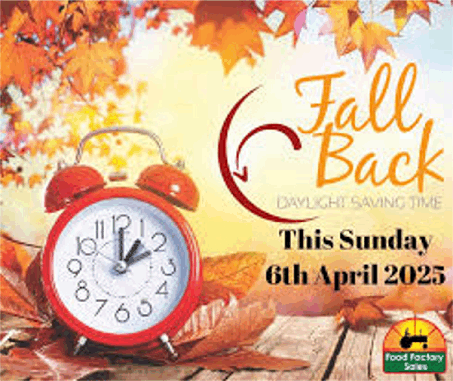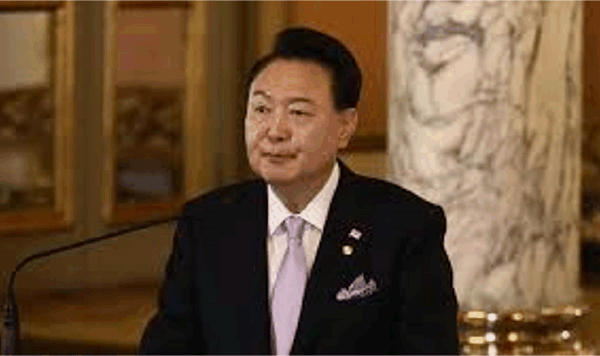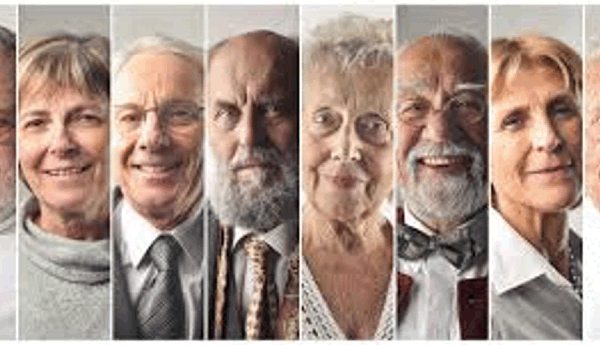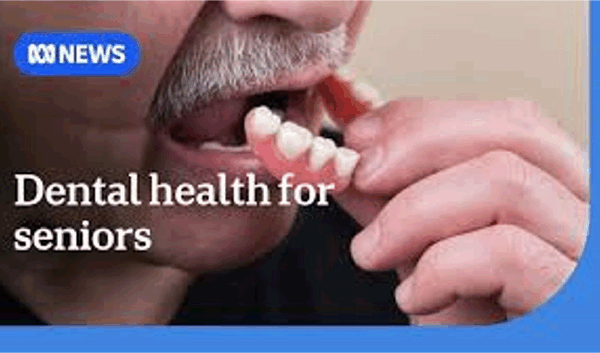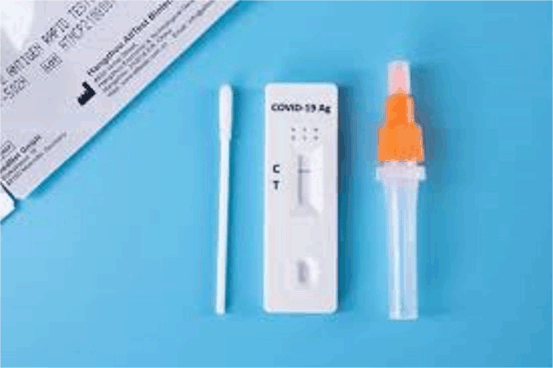보이스 토론과 씨름하는 1967년 국민투표 장로들을 만나보십시오.
1967년 국민투표가 있은 지 이틀 후, 뉴사우스웨일스 중북부 해안 배후지에 있는 졸린 마을 보라빌(Bowraville)의 주민들은 원주민 권리에 대한 주말의 대규모 투표에 대해 숙고하고 있었습니다.
한 현지인은 ABC 기자 제럴드 스톤에게 “나는 찬성표를 던졌다”고 말했다.
“나는 흑인들이 가는 것을 보고 싶다.”
1967년 5월 27일 호주인들은 인구 조사에 퍼스트 네이션(First Nations) 사람들을 포함하고 커먼웰스가 원주민 문제를 통제하도록 헌법을 변경하는 데 투표했습니다.
국가가 거의 92%의 찬성표를 냈지만 국민투표 당시 ABC는 “인종적 편협함의 일부로 해석될 수 있는 것”이라고 밝혔다.
또 다른 보우라빌 지역 주민은 ABC에 “그가 어디에 있든 빌어먹을 블랙풀라를 믿을 수 없다”고 말했다.
“그들은 유인물을 받았지만 우리는 할 수 없었고 열심히 일해야 했습니다.
“나는 반대표를 던졌다.”
Coffs Harbour와 Bowraville을 포함하는 Cowper의 연방 유권자는 당시 “원주민 문제”로 알려진 것에 대해 강한 반대를 표명했습니다.
Cowper 유권자의 18% 이상이 인구 조사에 원주민을 포함하는 것을 반대하여 WA의 Kalgoorlie와 남호주의 Penong 다음으로 호주에서 가장 인구가 많은 지역이 아닙니다.
67년 국민투표를 통해 살아보기
Bowraville 거리의 1967년 태도는 Gumbaynggirr 장로인 Aunty Bea Ballangarry의 역사적인 기록 보관소 그 이상입니다.
1943년 Bowraville에서 태어난 그녀는 마을 변두리에서 살면서 처음 6년 동안 이러한 감정을 경험했습니다.
어린 소녀의 오래된 이미지
Bea Ballangarry 아줌마는 1943년 Bowraville에서 태어났습니다.(제공)
“그것은 증오와 분열처럼 느껴졌습니다.”라고 그녀는 말했습니다.
“나에게 Bowraville은 변하지 않았습니다. Cowper는 변하지 않은 것 같습니다. 여전히 너무 보수적이라고 생각합니다. 구속복과 같습니다.”
Bea 아줌마는 Bowraville에서 북쪽으로 차로 약 1시간 거리에 있는 Coffs Harbour 집에 앉아 있습니다. 고향에 대한 ABC의 1967년 국민투표 보고서를 지켜보는 그녀의 아늑한 거실 벽에는 가족 사진과 찬사 액자가 가득합니다.
그것은 고정 관념입니다. 그건 추측이다”라고 과거 녹음된 댓글에 대해 말했다.
“그런 것들이 많이 기억나요. 최근 그런 것들이요.”
Bea 아줌마는 세 살 때 어느 날 저녁을 회상합니다. 그녀는 맹장이 터질 뻔했기 때문에 배가 아팠습니다. 그녀는 원주민들이 오후 6시 이후에는 마을에 들어올 수 없었지만 그녀의 부모는 그녀를 오래된 Bowraville 병원으로 데려다 주었다고 말했습니다.
Bea 아줌마는 회상합니다.
“엄마는 저를 팔로 안고 말씀하셨습니다. ‘글쎄, 나는 여기 이 베란다에 서 있을 테니 우리를 받아들이지 않으면 … 내 딸을 내 품에 안고.’
“오늘 그것에 대해 생각하면 내가 겪어야 했던 일 때문에 [부모님]이 마음이 아픕니다.”
Bowraville 병원의 직원은 그날 밤 Aunty Bea를 치료하기로 결정했지만 다른 배제와 인종 차별의 경험은 평생 동안 그녀를 따라갔습니다.
그래서 그것이 제 개인적인 이유이자 제 결정의 근거입니다.” 그녀는 올해 의회 목소리에 찬성표를 던진 이유에 대해 말했습니다.
그녀는 “나는 [1967년 국민투표]가 반쯤 일한 것 같은 느낌이 들었다”고 말했다.
“완성되지 않았습니다.
하지만 그녀와 가장 가까운 사람들 사이에서도 극명하게 다른 시각이 존재한다.
“가족 구성원이 올바른 투표가 반대라고 생각하는 것을 듣는 것은 어려운 일이지만 나도 그것에 이의를 제기할 생각은 없습니다.
“사람들이 다른 생각을 갖는 것이 정말 건전하다고 생각합니다.”
한 가족, 다양한 관점
Aunty Bea의 사촌인 Trevor Ballangarry 삼촌과 Martin Ballangarry 삼촌 OAM을 만나보세요. 둘 다 Bowraville의 고속도로 아래에 살고 있습니다.
Martin과 Trevor는 형제처럼 자랐지만 그렇다고 해서 그들이 항상 같은 투표를 한다는 의미는 아닙니다.
의견 불일치로 인해 가족이 갈라지는 것을 보셨을 것입니다. 결국에는 귀하의 생각은 귀하의 생각입니다.
“누군가를 지배하려고 하지 않는 것이 오래된 문화의 특징입니다.
“나는 찬성 투표를 할 것입니다. 그들이 67표를 던질 때 제가 주변에 있었기 때문에 우리에게 한 발짝을 내디뎠습니다.
“그러나 나는 그들이 [목소리]가 정치인이나 학자가 아니라 현장의 사람들이어야 한다고 믿습니다.”
예술가이자 지역 의원이자 원주민 청소년과의 작업으로 호주 훈장(OAM) 수상자로서 Martin 삼촌은 Bowraville 커뮤니티 센터에서 열린 그의 커뮤니티 행사에서 지역 주민들이 보이스 국민투표에 대해 관심을 갖도록 독려해 왔습니다.
그는 “‘아니오’라는 말을 함으로써 모두의 곁의 가시가 되고 싶다는 마음으로 왔다”고 건방진 미소를 지었다.
“나는 t에 대해 생각
그는 투표하지 않습니다 — 괜찮습니다. 그리고 찬성표는 괜찮습니다.”
차 한 잔, 케이크 몇 조각, Voice to Parliament가 어떻게 작동할지 또는 작동하지 않을지에 대한 토론 사이에 Martin 삼촌은 피아노에 올라타 자신의 곡인 ‘Gumbaynggirr Warrior’를 크게 부르기 시작합니다.
피아노에 투표 예 사인이 걸려 있고 그의 뒤 벽에는 예 포스터가 있습니다.
그는 “아직 초기 단계라 내가 찾고 있는 정보를 얻지 못했다”고 말했다.
“정부가 우리 국민에게 서비스를 제공하지 않기 때문에 우리의 신뢰는 사지에서 기둥으로 찢어졌습니다.”
격차를 줄이는 것은 목소리를 옹호하는 총리 Anthony Albanese의 주요 주장 중 하나이지만 Martin Ballangarry는 불리한 면에 있는 지역 사회에 전달할 수 있는 정부의 능력을 믿기 위해 고군분투하고 있습니다.
그는 최근 세 명의 성인 자녀를 잃었습니다.
“그들의 습관이 그들을 데려갔습니다. 마약과 술, 나중에 알고 있습니다. “라고 그는 말합니다.
“마약과 술은 많은 사람들을 제거합니다.”
Martin Ballangarry는 호주 원주민과 비원주민 사이의 건강 및 기대 수명 격차를 좁히기 위해 목소리가 무엇을 할 것인지 질문하고 있습니다.
그는 “호주 정부가 아직 그에게 깊은 인상을 주지 못했다”고 말했지만, 그는 손주들의 미래에 대한 희망에서 영감을 얻은 예스 캠프로의 이전을 고려하고 있습니다.
“미래가 우리 국민과 증손자들에게 희망을 준다면 찬성표를 던질 수밖에 없습니다.”
“나는 그들이 그들의 운명에 대해 발언권을 갖기를 원합니다.”
목소리가 충분히 포용적이지 않음
Gumbaynggirr 남자 Jimmy Cutmore는 국민 투표 정보 이벤트를 종료하기 위해 흡연 행사를 위해 Martin 삼촌과 합류했습니다.
Martin 삼촌이 커뮤니티 센터 밖에서 불을 피우는 것을 도우면서 Bowraville에서 자란 Jimmy는 Bowra라는 단어가 Gumbaynggirr 지명 Bawrrung에서 유래했다고 설명합니다.
이 마을은 역사적으로 인종 차별 혐의에 연루되어 있었지만 메인 스트리트에서 문화를 실천할 수 있다는 것을 자랑스럽게 생각하지만 목소리가 자신을 위한 것이 아니라는 점을 인정합니다.
“나는 투표하지 않을 것”이라고 그는 말했다.
“그것은 내 견해를 대변하지 않고 내 사람들을 대변하지 않는다고 느끼기 때문입니다.
“가장 먼저 하고 싶은 것은 조약입니다. 이미 기한이 지났기 때문입니다.”
조약은 심장에서 우러나온 울룰루 선언문(Voice, Treaty, Truth)이 제안한 일련의 개혁에 대한 두 번째 단계입니다. 그러나 많은 원주민 호주인들은 조약이 첫 번째가 될 것을 요구하고 있습니다.
지미의 견해는 The Voice가 호주 전역에 걸쳐 모든 원주민을 옹호하는 가장 포괄적인 메커니즘이 아닐 수 있다는 것입니다.
그는 “우리는 우리가 무엇을 하고 어떻게 하는지에 대한 통제권과 발언권을 가질 필요가 있다”고 말했다.
“우리는 그것에 대해 조금 더 이야기하고 조금 더 함께 모일 필요가 있습니다.”
실이 계속 나오게 해주세요
더 많은 대화와 연결을 위해 함께 모이는 것은 Bea 아줌마가 평생을 실행해 온 전략입니다.
Bea 아줌마는 사람들이 안전한 공간에서 자신의 진실을 말하고 방해나 판단 없이 다른 사람들이 자신의 이야기를 나누는 것을 들을 수 있는 활동인 실링 서클을 개최합니다.
“그것은 [국민투표]가 모든 곳에서 많은 분열을 일으켰다”고 그녀는 말했다.
“때때로 나는 그것이 반대표를 던지는 가족과 관련이 있을 때 그것으로 어려움을 겪습니다. 그들은 그것에 대해 정말 편안해합니다. 나는 그것이 편하지 않지만 그것이 제 이야기입니다.
“그러나 그것에 대해 이야기하는 것이 좋을 것입니다.”라고 Aunty Bea는 덧붙였습니다. 왜냐하면 모든 호주인들 앞에 매우 중요한 결정이 있고 “우리가 올바른 결정을 내릴 것인지에 대해 약간의 걱정이 있기 때문입니다.”
ABC 원주민 문제 팀에 연락하십시오:
선택 사항으로 표시되지 않는 한 모든 필드는 필수입니다.
이메일
무엇에 대해 문의하십니까?
옵션을 선택하세요
ABC 웹사이트에 게시된 특정 이야기/토론과 관련된 경우 URL을 제공하세요(선택사항).
우리에게 무엇에 대해 말하고 싶습니까?
이름
성(선택 사항)
휴대전화
원주민 및/또는 토레스 해협 섬 주민이라고 생각하십니까?
옵션을 선택하세요
귀하의 위치를 가장 잘 설명하는 것은 무엇입니까?
옵션을 선택하세요
위치 선택기
호주의 교외 또는 우편 번호를 입력하고 목록에서 선택하십시오.
위치
교외 또는 우편번호 입력
귀하의 배경에 대해 몇 가지 더 개인적인 질문을 드려도 될까요? 대답하지 않아도 괜찮습니다.
옵션을 선택하세요
ABC 이용약관 및 ABC 개인정보 수집방침에 동의합니다.필수
이 양식을 제출하기 전에 알려주고 싶은 다른 사항이 있습니까? (선택 과목)
업로드할 것이 있으면 아래에서 업로드하십시오(선택 사항).
선택된 파일 없음
파일 선택, 드래그 앤 드롭 또는 복사 및 붙여넣기(최대 크기: 1GB)
제출하다
이 사이트는 reCAPTCHA로 보호되며 Google 개인정보 보호정책 및 서비스 약관이 적용됩니다.
ABC iview 및 ABC TV에서 월요일~목요일 오후 7시 30분 7시 30분 시청
4시간 전에 게시됨
Meet the 1967 referendum elders grappling with the Voice debate
/
By national Indigenous correspondent Carly Williams
Posted 4h ago4 hours ago
Help keep family & friends informed by sharing this article
abc.net.au/news/bowraville-elders-grappling-with-voice-debate-730/102660028
Link copiedCOPY LINKSHARE
Two days after the 1967 referendum, folks in the sleepy town of Bowraville on the mid-north coast hinterland of New South Wales were reflecting on the weekend’s big vote on Aboriginal rights.
Key points:
- In the 1967 Indigenous referendum, the electorate of Cowper — which includes the town of Bowraville — returned the highest No vote in NSW
- Indigenous families are working through what it’s like to have differing opinions on the Voice to Parliament
- Some young First Nations people in Bowraville don’t believe the Uluru Statement’s sequence of reform is the best fit for all Aboriginal and Torres Strait Islander people
“I voted yes,” a local man told ABC reporter Gerald Stone.
“I’d like to see the Blacks have a go.”
On May 27, 1967 Australians voted to alter the constitution to include First Nations people in the census and for the Commonwealth to take control of Aboriginal affairs.
Although the country returned a yes vote of almost 92 per cent, the ABC reported at the time the referendum revealed: “What could be interpreted as some pockets of racial intolerance.”
“You can’t trust a bloody Blackfulla no matter where he is, he gets on the plonk and he won’t work,” another Bowraville local told the ABC.
“They get handouts and we can’t and we got to work hard.
“I voted no.”
The federal electorate of Cowper, which includes towns Coffs Harbour and Bowraville, recorded heavy opposition to what was known at the time as the “Aboriginal question.”
More than 18 per cent of Cowper voters were against including First Nations people in the census, making it one of the heaviest no regions in Australia after Kalgoorlie in WA and Penong in South Australia.
Living through the ’67 referendum
The 1967 attitudes on the streets of Bowraville are more than just historical archives for Gumbaynggirr elder Aunty Bea Ballangarry.
Born in Bowraville in 1943, she experienced these sentiments for the first six years of her life when she lived on the fringes of town — a driver, she says, for voting Yes in the coming referendum on an Indigenous Voice to Parliament.
“It felt like hatred and it’s … division,” she said.
“For me, Bowraville hasn’t changed. I feel Cowper hasn’t changed. I still feel it’s so conservative. It’s like a straitjacket.”
Aunty Bea is sitting in her Coffs Harbour home, about an hour’s drive north of Bowraville. Family pictures and framed accolades pepper the walls of her cosy living room as she watches the ABC’s 1967 referendum report on her hometown.
“That is stereotyping. That’s assumptions,” she said of the recorded comments from the past.
“I remember a lot of stuff like that. Recent stuff like that.”
Aunty Bea recalls one evening, when she was three years old, she had a pain in her belly because her appendix was about to burst. She said that Aboriginal people were not allowed in town after 6pm, but her parents ran her to the old Bowraville Hospital.
“What they were faced with was a staff member from the hospital saying to mum and dad that they couldn’t take me in because there was a policy to prevent me going into that building,” Aunty Bea recalls.
“Mum held me in her arms and she said, ‘well, I’m going to stand here on this verandah and if you don’t take us in … if anything happens to her it’s going to happen here on the front verandah with me holding my daughter in my arms.’
“When I think about that today, I ache for them [my parents] for what I had to go through.”
Staff at Bowraville Hospital decided to treat Aunty Bea that night but other experiences of exclusion and racism followed her throughout her life.
“So that’s my personal reasons and rationale into my decision,” she said of her reasoning behind voting Yes for a Voice to Parliament this year.
“I felt like [the 1967 referendum], that was a bit of a half job,” she said.
“It wasn’t completed.”
But even among those closest to her, there are fiercely different viewpoints.
“It’s a hard thing to hear a family member think the right vote is No but I’m not about to challenge that either.
“I think it’s really healthy for people to have different ideas.”
One family, many perspectives
Meet Aunty Bea’s cousins Uncle Trevor Ballangarry and Uncle Martin Ballangarry OAM — they both live down the highway in Bowraville.
Martin and Trevor grew up like brothers but that doesn’t mean they always vote the same.
“You see families split because of disagreements, at the end of the day, your thoughts are your own,” explains Uncle Trevor, who will vote Yes for a Voice but has some questions about how those in the advisory body will be selected.
“You don’t try to dominate somebody else and that’s what the old culture is about.
“I will be voting Yes because I was around when they did the 67 vote, that gave us one foot in the door.
“But I believe they [the Voice] need to be people on the ground, not the politicians or academics.”
As an artist, local councillor and a Medal of the Order of Australia (OAM) recipient for his work with Indigenous youth, Uncle Martin has been encouraging locals to have a yarn about the Voice referendum at his community event at the Bowraville Community Centre.
“I came with the intention of being a thorn in everybody’s side by saying ‘No’,” he said with a cheeky smile.
“I thought about the No Vote — it’s OK. And the Yes vote is OK.”
In between cups of tea, a few slices of cake and discussions about how the Voice to Parliament might or might not work, Uncle Martin slips onto the piano and starts belting out his tune ‘Gumbaynggirr Warrior’.
There’s a Vote Yes sign hanging on the piano and a Yes poster on the wall behind him.
“It’s still early days, I still haven’t got the information that I’m seeking,” he said.
“Our trust has been torn from limb to post you know, because [government] not coming up with the goods to service our people.”
Closing the gap is one of Prime Minister Anthony Albanese’s key arguments advocating for the Voice, but Martin Ballangarry’s struggling to believe in the government’s ability to deliver to communities at the coalface of disadvantage.
He’s recently lost three adult children.
“Their habits took em. Drug and alcohol, ya know,” he shares.
“Drugs and alcohol remove a lot of our people.”
Martin Ballangarry is questioning what the Voice would do to help close the health and life expectancy gaps between Indigenous and non-Indigenous Australians.
Although he said “the government of Australia has not impressed” him yet, he has been considering moving to the Yes camp — a move inspired by his hopes for his grandchildren’s future.
“I think if the future holds some hope for my people and my great-grandkids, I just got to vote Yes,” he mused.
“I want them to have a say in their destiny.”
Voice not inclusive enough
Gumbaynggirr man Jimmy Cutmore has joined his Uncle Martin for a smoking ceremony to close his referendum information event.
As he helps Uncle Martin make fire outside the community centre, Jimmy, who grew up in Bowraville, explains the word Bowra comes from the Gumbaynggirr place name Bawrrung.
Although the town has historically been involved with charges of racial discrimination, he’s proud he can practice culture on the main street, but he concedes the Voice is not for him.
“I won’t be votin’,” he said.
“Because it does not represent my views and I feel like it does not represent my people.
“The first thing I would like is a Treaty. Because that’s been well overdue.”
Treaty is the second step to the sequence of reforms proposed by the Uluru Statement from the Heart: Voice, Treaty, Truth. But many First Nations Australians are calling for Treaty to be first.
It’s Jimmy’s view the Voice is probably not the most inclusive mechanism to advocate for every Indigenous person across the breadth and depth of Australia.
“We do need to have that control and that say of what we do and how we do it,” he said.
“We just need to talk a little bit more about that and come together a little bit more.”
Keep the yarns coming
Coming together for more talks and connection is a strategy Aunty Bea has implemented her whole life.
Aunty Bea holds yarning circles, an activity where people can speak their truth in a safe space and listen to others share their stories without interruption or judgement.
“It’s [the referendum] made a lot of division all over the place,” she said.
“Sometimes I struggle with that when it’s to do with my family who go into a No vote and they feel really comfortable with that. I’m not comfortable with it, but that’s my story.
“But it would be good to talk about it,” Aunty Bea added, because there’s a very important decision ahead of all Australians and “there’s a little bit of a worry about whether we’re going to make the right decision or not.”
Contact the ABC Indigenous Affairs Team:
All fields are required unless marked optional.EmailWhat are you contacting us about?Select an optionIf this relates to a specific story/discussion published on the ABC website, please provide a URL (optional)What do you want to tell us about?First nameLast name (optional)Mobile phoneDo you identify as Aboriginal and/or Torres Strait Islander?Select an optionWhat best describes your location?Select an option
Location selector
Enter a suburb or postcode in Australia and select from the listLocationCan we ask you a few more personal questions about your background? It’s ok if you prefer not to answer.Select an optionI agree to the ABC Terms of Use and ABC Privacy Collection Statement.requiredIs there anything else you want to tell us before you submit this form? (optional)If you have anything to upload, please do so below (optional)
Select, drag and drop or copy and paste files (maximum size: 1 GB)SUBMIT
This site is protected by reCAPTCHA and the Google Privacy Policy and Terms of Service apply.
Watch 7.30, Mondays to Thursdays 7.30pm on ABC iview and ABC TV





